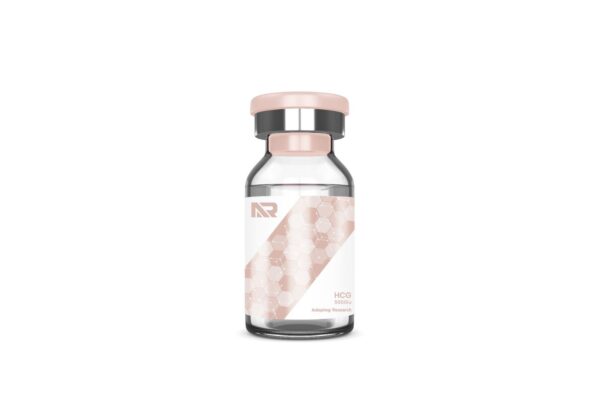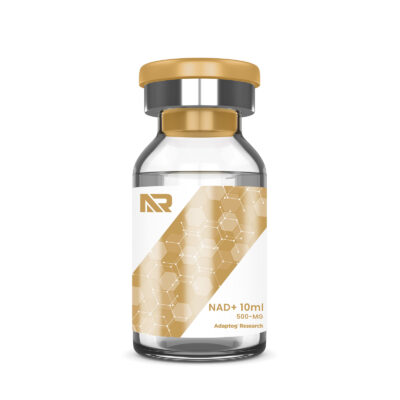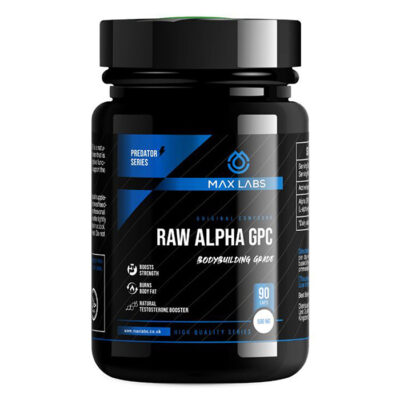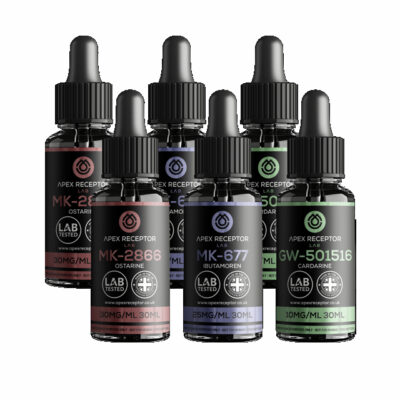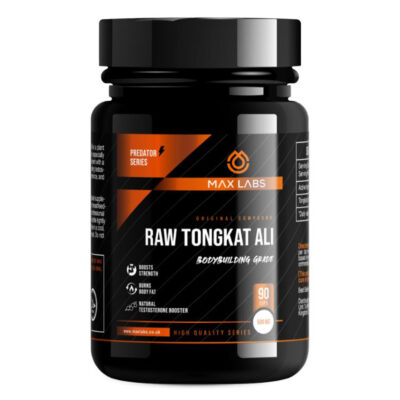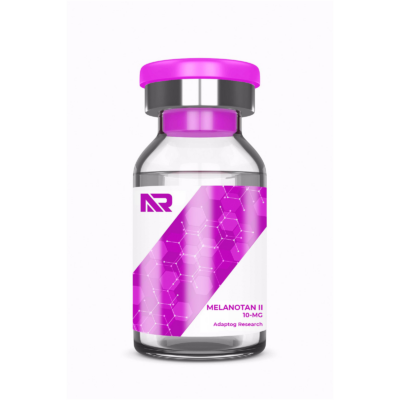Peptides have caught the attention of many in the fitness world because they may enhance performance and accelerate recovery. Made of short amino acid chains, they act as the foundation of proteins and are essential for many bodily functions. Avid gymgoers and fitness fans can use peptides to reach fitness goals faster.
- Peptides play a role in triggering specific hormones, which can help build muscle, accelerate recovery, and improve performance.
- Unlike other supplements, peptides act at a molecular level and focus on specific benefits. This targeted approach appeals to people committed to their fitness goals.
Scientists are continually learning more about peptides, with new research uncovering additional uses and benefits. This growing knowledge gives athletes and fitness fans the ability to use peptides in safe and effective ways. Understanding how they fit into your fitness plan can help you push past limits and achieve greater results.
Types of Peptides and Their Uses
Peptides come in many forms, and each peptide has a specific job. Knowing the differences will help you to pick the right one to meet your fitness needs.
Peptides fall into different categories:
- Growth hormone secretagogues help boost the body’s ability to make growth hormones. This can result in more muscle and quicker recovery. Well-known examples are CJC-1295 and Ipamorelin, which are recognised for building muscle and speeding up recovery.
- Healing peptides such as BPC-157 and TB-500 work to heal tissues and cut down inflammation. These are useful to heal injuries and to reduce strain caused by tough workouts.
- Fat loss peptides like AOD9604 help the body burn more fat by boosting its lipid metabolism. Individuals seeking to lose excess weight while preserving their muscle mass may find these peptides beneficial.
What Are the Benefits of Peptides for Bodybuilding?
- Muscle-building
- Fat-burning
- Accelerated healing and recovery
The appeal of peptides in fitness circles stems from their potential to aid both physical performance and aesthetics. For serious gym-goers and athletes, peptides offer a promising avenue for enhancing several dimensions of physical development.
Growth hormone peptides have demonstrated the ability to increase lean muscle mass while simultaneously reducing body fat, creating the coveted “recomposition” effect that traditionally requires carefully cycling between bulking and cutting phases.
Recovery acceleration represents another significant benefit, particularly valuable in an industry where training frequency and intensity often push the body to its limits.
- BPC-157, frequently called the “healing peptide,” has shown remarkable tissue-regenerative properties in preclinical studies.
- Research published in the Journal of Physiological Pharmacology demonstrated that BPC-157 enhanced healing in damaged muscle tissue, tendons, and ligaments—injuries common among dedicated fitness enthusiasts. We’ve recently published our article on BPC-157, which we recommend reading.
While mainstream fitness culture often focuses on short-term transformations, many committed enthusiasts recognise the importance of longevity in their fitness journey. Certain peptides appear to offer benefits in this domain as well.
We’ve put together a mini-guide below of the most popular peptides and those that we stock at UK SARMs.
How Do Peptides Help to Build Muscle?
Building muscle is typically a key goal for many in fitness and gym circles, and peptides can play an important part in achieving that goal. They work by raising growth hormone levels in the body. This hormone plays a significant role in protein synthesis, which the body needs to repair and grow muscles.
Peptides help muscles grow by keeping more nitrogen in the muscle tissue. Nitrogen plays an essential role because it is a component of amino acids, which are the building blocks of muscle tissue. When muscles maintain a healthy nitrogen balance, they grow better, gaining both size and strength.
- Peptides also enable muscle cells to pull in more nutrients. This allows muscles to get the materials they need to recover and grow after exercise.
- Better nutrient delivery, along with improved protein building and nitrogen balance, makes peptides valuable to anyone aiming to build muscle faster and more efficiently.
What is the Best Peptide to Lose Fat?
AOD9604
Losing fat is a goal that many people aim to achieve, and peptides offer a fresh way to help reach it. Some peptides, like AOD9604, are created to enhance how the body processes and burns fat. They assist by helping the body tap into its own metabolic systems to break down fat more effectively.
Additionally, peptides maintain lean muscle while shedding fat. This is important because holding onto your muscle is key to keeping your metabolism running high, which in turn helps burn fat. This effect aids body recomposition by dropping fat while maintaining muscle.
Lastly, peptides not only boost how your body burns fat but also help manage hunger and increase energy. They can make following a calorie-based diet easier while providing the energy needed to stick to strong workout routines. Adding peptides to fat loss plans can help people shape a leaner body faster.
AOD9604 Side Effects
- This modified fragment of growth hormone, primarily used for fat loss, generally presents a milder side effect profile than many other performance peptides. However, headaches, dizziness, and fatigue affect a meaningful percentage of users, particularly when dosing exceeds recommendations.
- A small percentage (roughly 4-7% in reported cases) develop antibodies against the peptide, rendering it ineffective with continued use.
These antibody responses can trigger allergic-type reactions ranging from a mild rash to more concerning systemic responses requiring discontinuation. Limited research suggests potential effects on glucose metabolism with extended use, though these effects appear less pronounced than with full growth hormone administration.
The Best Peptides to Heal and Recover
- BPC-157
- TB-500
Healing and recovery play a big role in any fitness journey, and peptides can have a powerful impact here.
Peptides like BPC-157 and TB-500 are well-known for their ability to aid healing. These are perfect for anyone healing from an injury or trying to reduce the effects of tough workouts.
- BPC-157 helps repair soft tissues like tendons and ligaments and speeds up healing after injuries.
- It lowers inflammation as well, which shortens the time it takes to recover. This makes it useful to athletes and fitness lovers who often push their bodies hard.
TB-500 works by supporting cell regeneration and enhancing the body’s flexibility. A 2020 study in the International Journal of Molecular Sciences highlighted its ability to promote angiogenesis (formation of new blood vessels) and tissue repair following injury. It can help people with long-term injuries or health problems that require ongoing care. Adding these peptides to your recovery plan boosts your body’s natural repair system, letting you train more often and at higher intensity.
Potential Side Effects
TB-500 users can encounter flu-like symptoms during initial administration periods. Headaches, body aches, and fatigue typically emerge within 24-72 hours of first dosing, creating what users often describe as a “first-dose reaction” that generally subsides with continued use. A small percentage of users report temporary hair shedding, though this typically resolves after discontinuation.
- The peptide’s angiogenic properties and its ability to stimulate new blood vessel growth raise theoretical concerns about potential interactions with undiagnosed cancerous tissues.
- A 2022 review in the International Journal of Molecular Sciences addressed this concern, noting that while direct evidence remains limited, the peptide’s vascular effects warrant caution in those with family histories of cancer or unexplained growths.
Best Peptides to Build Strength and Boost Performance
- CJC-1295
- Ipamorelin
Peptides such as CJC-1295 and Ipamorelin are used by people trying to raise their strength and boost how well they perform overall.
Studies show that CJC-1295 is effective in boosting growth hormone levels in the body, with a single injection raising levels for nearly a week. This compound lasts much longer in the body than similar products, staying active for 5-8 days. What makes CJC-1295 special is that it raises hormone levels while keeping the body’s natural hormone release pattern, which doctors believe is important for getting the best results.
Research has found that using CJC-1295 multiple times can lead to more efficacious, long-lasting effects, with benefits continuing for almost a month after treatment. Testing shows it’s generally safe for most people, especially at certain doses, making it a promising treatment option for those with low growth hormone levels.
Individuals use CJC-1295 to increase the natural release of growth hormone. This has a direct effect on improving muscle strength and endurance. Many pick this peptide because it helps them with both quick bursts of power and longer-lasting energy. It also supports recovery, making it easier to endure tougher training routines.
Using peptides aids you in reaching higher levels of strength and performance, therefore allowing you to meet your goals quickly.
Side Effects
As a growth hormone-releasing hormone (GHRH) analogue, CJC-1295 triggers side effects primarily related to elevated growth hormone levels. Water retention leading to joint discomfort, carpal tunnel-like symptoms, and temporary numbness or tingling in extremities affects roughly 30-40% of users, particularly during initial administration periods. A 2021 review in the Journal of Clinical Endocrinology found that the sustained elevation of growth hormone levels, as seen with CJC-1295 use, was associated with a measurable reduction in insulin sensitivity in otherwise healthy adults.
- Headaches, typically described as pressure behind the eyes or general cranial discomfort, commonly occur within hours of administration but typically resolve with continued use.
- More concerning is the potential for enlarged organs (specifically the heart) with long-term, high-dose administration. However, this remains primarily theoretical without substantial human evidence at typical fitness dosing protocols.
Peptides at UK SARMs
At UK SARMs, we sell 3 types of peptides:
We’ve covered BPC-157 extensively here. We go into detail about retatrutide and HCG below:
Retatrutide
Clinical studies have demonstrated retatrutide’s impressive efficacy as a novel triple-hormone receptor agonist targeting GIP, GLP-1, and glucagon receptors. Research published in the New England Journal of Medicine revealed substantial weight reduction benefits, with participants achieving up to 24.2% weight loss over 48 weeks at the highest dosage, surpassing results seen with earlier generation incretin therapies.
Beyond significant weight management benefits, phase 2 clinical trials documented impressive cardiometabolic improvements, including reductions in haemoglobin A1c, fasting blood glucose, insulin levels, and blood pressure. This is particularly promising for individuals with metabolic complications. Additional research demonstrated retatrutide’s beneficial effects on non-alcoholic fatty liver disease, with mean relative liver fat reductions exceeding 80% at higher doses.
Retatrutide Side Effects
The safety profile of retatrutide from multiple phase 2 trials indicates that the most common adverse events are predominantly gastrointestinal in nature, including nausea, vomiting, diarrhoea, and constipation, which typically occur primarily during the dose escalation period. Researchers note these side effects are generally mild to moderate in severity and comparable to those observed with other GLP-1 and GIP/GLP-1-based therapies used for treating type 2 diabetes or obesity.
- Importantly, comprehensive safety monitoring across studies showed no significant hepatotoxicity signals, with liver enzymes (ALT and AST) generally remaining stable or even decreasing over the treatment period.
- The frequency of serious adverse events during trials was similar between retatrutide and placebo groups (approximately 4% in each), supporting the medication’s overall favourable safety profile.
HCG
Human Chorionic Gonadotropin (HCG) is a hormone that is particularly used to address hormonal deficiencies and fertility challenges.
- Research published in the Journal of Clinical Endocrinology and Metabolism demonstrates that in older men experiencing partial androgen deficiency, getting recombinant HCG (r-HCG) significantly boosts total and free testosterone by about 150%, keeping those levels up throughout the treatment.
- Clinical trials found that giving r-HCG shots (5000 IU) under the skin twice a week for three months brought some physical perks, like adding approximately 2 kg of lean body mass and losing roughly 1 kg of fat.
Medically speaking, HCG works because it acts a lot like luteinizing hormone (LH), telling the testes to make testosterone and helping with sperm production. This makes it useful for treating hormone issues. It can be used to help women get pregnant when paired with other fertility meds, to get men or teenage boys producing more testosterone and sperm, and to treat cryptorchidism, which is a birth defect with the testes in young boys.
HCG Peptide Side Effects
Clinical research on HCG administration identifies several potential side effects that patients and healthcare providers should carefully consider. A randomised controlled trial reported that some male patients experienced nipple tenderness. However, this did not progress to gynecomastia during the study period, and a significant decrease in testis volume (approximately 5 ml) was observed, likely due to negative feedback on gonadotropin secretion.
According to medical literature, patients may experience injection site reactions, including pain, irritation, or inflammation, along with potential hormonal effects such as acne, mood changes, facial hair growth, and fatigue.
Clinical guidance emphasises that HCG is not recommended for several conditions, including certain cancers (prostate, ovarian, or hormone-sensitive malignancies), uncontrolled hypertension, heart or kidney disease, and conditions like glaucoma or hyperthyroidism.
It’s important to note that while HCG has legitimate medical applications supported by clinical evidence, its use in unregulated weight loss programs is not FDA-approved and poses significant health risks, including:
- Electrolyte imbalances
- Gallstone formation
- Irregular heartbeat
- Nutritional deficiencies
To reduce side effects, begin with a small dose and increase it as your body becomes accustomed to the peptide. It’s important to track how your body reacts and report any unpleasant reactions to a healthcare specialist. This method helps you change your plan based on what your body can handle. As with any supplements and medications, we always recommend doing your research and seeking medical advice.
How to Use Peptides
Using peptides correctly is key to ensuring they work effectively and remain safe. The dose you need depends on the type of peptide and your personal goals. You should stick to advice from trusted sources or a doctor.
Most people take peptides through subcutaneous injections, which are injected under the skin. This allows the body to absorb them and maximise their benefits. Learning correct injection methods is important to reduce pain and avoid problems.
Some safety steps involve sticking to sterile tools during injections, switching up injection spots to protect tissues, and following the suggested dose.
Knowing when to take peptides is just as important as knowing how much to take. Some need daily use, but others last longer and can be taken less often. Following the right dosage and knowing how to take them helps you get the most out of peptides while staying safe and healthy.
For each peptide, it is important that you follow the dosage guidelines. At UK SARMs, we ensure our peptides have all the information you need to administer them safely.
Conclusion: Boosting Fitness Using the Right Peptides
Peptides open up exciting possibilities for people aiming to improve their fitness, recovery, and results. Learning about different peptide types and what each one helps with will allow you to customise your plan to match your fitness targets. Whether you aim to build muscle, burn fat, or speed up recovery, the right peptides can give you a big boost.
To get the most out of peptides, you need to:
- Stick to the correct doses
- Use them the right way
- Stay aware of possible risks
- Adhere to legal requirements
Doing all this lets you add peptides to your fitness routine, helping you reach your goals and explore new levels of potential.
If you want to improve your fitness using peptides, talk to a doctor or experienced fitness trainer to create a plan that fits you. Peptides can become an effective part of boosting your performance and fitness when used wisely.
Take a look at our full range of peptides here.
References:
- MDPI – Publisher of Open Access Journals
- Prolonged stimulation of growth hormone (GH) and insulin-like growth factor I secretion by CJC-1295, a long-acting analog of GH-releasing hormone, in healthy adults – PubMed
Metabolic studies of a synthetic lipolytic domain (AOD9604) of human growth hormone – PubMed - Volume 106 Issue 9 | The Journal of Clinical Endocrinology & Metabolism | Oxford Academic
- A double-blind, placebo-controlled, randomized clinical trial of recombinant human chorionic gonadotropin on muscle strength and physical function and activity in older men with partial age-related androgen deficiency – PubMed


